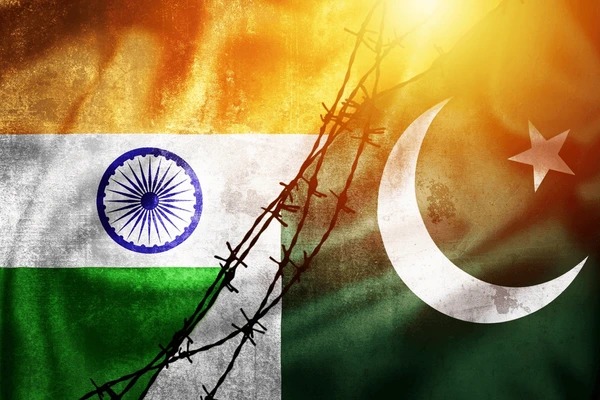The crisis began with the tragic Pahalgam attack, where unidentified gunmen targeted civilians. India, without presenting evidence, shamelessly accused Pakistan and used the incident to justify hostile actions. In a reckless decision, India suspended the Indus Waters Treaty, turning a peaceful accord into a pressure tactic. Days later, India launched a cowardly and unlawful midnight strike on Azad Kashmir, Bahawalpur, and other cities of Punjab, purposely targeting civilian areas.
Pakistan did not remain silent. The armed forces responded with strength, shot down 3 Rafale Planes, 1 SU-30, 1 MIG-29, eliminating a drone, and striking a key military command post. This was not just retaliation—it was a clear message: Pakistan does not tolerate aggression. This article traces how the crisis began, how Pakistan answered with clarity and control, and why the international community must now step in. Pakistan’s resolve is unwavering, but war is never the solution.
Pahalgam Attack: Pakistan Demands Justice, Not Blame
The Pahalgam tragedy shook the region—26 innocent lives were lost in a brutal attack by unidentified gunmen. Rather than launching a lawful investigation or seeking cooperation, India blamed Pakistan without presenting evidence. No arrests, no inquiries, no effort to identify the real culprits—only loud accusations and media-fuelled outrage.
Pakistan immediately condemned the attack and offered a joint investigation to uncover the truth. Yet, India rejected the proposal. Instead of acting responsibly within its territory, it pointed fingers. This baseless blame exposed India’s insecurity and unwillingness to pursue justice—a shameful display of deflection, not leadership.
India’s Suspension of the Indus Water Treaty: A Reckless Provocation
India’s suspension of the 1960 Indus Waters Treaty was irresponsible and an open insult to international law. Hiding behind diplomatic jargon like “held in abeyance,” India blocked river flows by shutting the Baglihar sluice gates. Instead of resolving issues, the Indian Government chose water warfare against millions of Pakistanis: no legal process, no global consultation—just raw political vengeance.
Pakistan rightfully called it an act of war and informed the UN, World Bank, and major powers. India’s action exposed its desperation and disregard for peace. Humiliatingly, it punished civilians, not “terrorists,” and further stained its credibility on the world stage.
Escalation Along the Line of Control
India’s aggression intensified as heavy shelling lit up the LoC night after night. Pakistan’s border towns, including Kotli and Bhimber, saw hospitals overwhelmed with wounded civilians. Thousands were forced to flee their homes under constant threat. Seventeen ceasefire violations were recorded in just one week—clear evidence of India’s deliberate provocation.
While Pakistan showed restraint, keeping hotline channels open to avoid a full-scale war, India continued its unprovoked attacks. This reckless military escalation exposed India’s obsession with conflict over diplomacy. Instead of controlling the situation, India fueled chaos, putting countless innocent lives at risk in a bid to distract from its internal failures.
India’s Midnight Strike: Cowardice Disguised as Action
Shortly after midnight on 6 May, Indian warplanes crossed the Line of Control and bombed nine locations in Azad Kashmir and Punjab. India claimed it targeted “militant camps,” but reality exposed a shameful lie. Pakistan’s Inter-Services Public Relations confirmed 26 civilian deaths, including women, children, and men, in two mosques. These weren’t military strikes—they were acts of state terror. Instead of accountability, India delivered destruction. In contrast, Pakistan responded with strength and dignity.
Prime Minister Shehbaz Sharif declared, “Pakistan has every right to give a robust response to this act of war imposed by India, and a strong response is indeed being given.” India’s arrogance was met with Pakistan’s discipline, force, and honour.
Pakistan’s Swift and Decisive Counter-Strike
India’s cowardly airstrike was answered with unmatched precision and strength. Pakistan’s Air Force launched a calculated counter-offensive that dismantled India’s false show of power. Pakistan shot down three Rafale jets, one SU-30, and one MIG-29, sending a clear message that airspace violations would never go unanswered. A hostile drone breaching Bhimber’s skies was also swiftly eliminated by ground forces.
Simultaneously, Pakistan’s artillery struck a major Indian military command post and brigade headquarters near Poonch, neutralizing vital infrastructure. This operation showcased Pakistan’s military superiority, discipline, and readiness. India’s aggression ended in embarrassment, while Pakistan stood firm, defending its soil with force and dignity.
India’s Messaging and Reality
Indian ministers boasted of “surgical precision” and denied any civilian casualties. But international journalists in Muzaffarabad witnessed destroyed homes and mourning families. Images of bombed mosques quickly surfaced, exposing the truth India tried to hide. Analysts questioned the motive, pointing to India’s upcoming state elections. Many critics argued the raid was a political stunt, not a security measure. The operation backfired, revealing the cost of using aggression for electoral gain and exposing India’s fabricated narrative.
Water As A Weapon
Suspending the Indus Pact amplified fears beyond the battlefield. Pakistan’s farmers rely on the Chenab and Jhelum rivers to grow wheat and cotton. Because canals already face drought, even short interruptions threaten food security. Experts warn that weaponising water breaks a precedent respected during earlier wars. Consequently, Islamic Relief and the Red Cross started contingency plans for possible crop failure.
Diplomatic Front Lines
Pakistan filed a formal dossier to the UN Security Council demanding a fact-finding mission to Pahalgam and the bombed towns. The brief included satellite images of cratered mosques and schoolyards. Meanwhile, China urged an urgent session, and Turkey offered shuttle diplomacy. However, India refused third-party mediation, repeating that “terror must stop before talks start.” That stance stalled every forum.
Secretary‑General António Guterres: “The world cannot afford a military confrontation between India and Pakistan.”
International Community Steps In
The UN Secretary‑General appealed for restraint and proposed a five-point de-escalation plan. Washington urged both nuclear powers to reopen water negotiations. Moscow volunteered to host back-channel talks, citing its experience during the Kargil mediation. Meanwhile, the EU warned that prolonged conflict threatened shipping insurance rates in the Arabian Sea. Because big economies felt potential shocks, pressure on Delhi and Islamabad mounted daily.
Human Cost Beyond Numbers
Victims in Kotli recall the night sky glowing orange. One survivor told reporters, “The blast threw my son across the room.” Doctors worked without sleep, while volunteers donated blood. Meanwhile, families of downed Indian pilots waited for news, proof that war spares neither side. These shared sorrows underline the urgent need for dialogue.
The Bigger Picture Of The Indo-Pak War
Observers note three drivers behind the Government of Delhi’s gambit. First, domestic politics needed a decisive gesture. Second, scrapping the water treaty distracted voters from economic worries. Third, night cowardly raids allowed India to claim initiative while avoiding daytime media inspection. Yet each factor misread Pakistan’s resolve. Consequently, India now faces global censure and a hardened adversary.
War Is Not An Option
Wars start when dialogue stops, and treaties die. The Pahalgam killings required joint policing; instead, India chose bombs. Suspending river sharing only deepened mistrust. Pakistan’s measured counter‑strike upheld deterrence yet avoided civilian harm. Meanwhile, outside nations urge both capitals to step back and rebuild channels.
War helps no one. Families on both sides need bread, not bullets. Therefore, the global community must step in quickly and firmly. It should press India to restore the Indus pact, support an impartial inquiry, and urge both armies behind the ceasefire lines. At the same time, Pakistan stands ready to cooperate with every fair initiative. Open diplomacy, verified facts, and renewed treaties can cool today’s anger. The danger of another midnight strike will remain until world powers cooperate and keep both governments talking. Silence is not neutrality; it invites disaster. Prompt, united engagement is the only path that turns this crisis away from war.

















Leave a comment